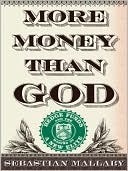Because inflation had been vanquished, central banks felt free to stimulate economies with low interest rates, rendering money cheap and creating the conditions for an asset bubble. Because exchange rates were now stable, Wall Street was emboldened to take other sorts of risk, leveraging itself up and further adding to the bubble. Each new era brought a fresh kind of blunder, creating a fresh opportunity for traders too.
So how exactly is 2017 different from 2007? Credit is certainly cheaper now. I wonder if anyone has looked at the total amount consumers pay in interest per year relative to their incomes?
Yes, and it surprised me that its actually down:https://fred.stlouisfed.org/series/TDSP. Meanwhile, total household debt is back at peak levels:https://www.newyorkfed.org/microeconomics/hhdc.html. Have incomes really moved enough to meaningfully drop the debt to income ratio? Can find median income here:https://fred.stlouisfed.org/series/MEHOINUSA672N
· Flag
Brian

